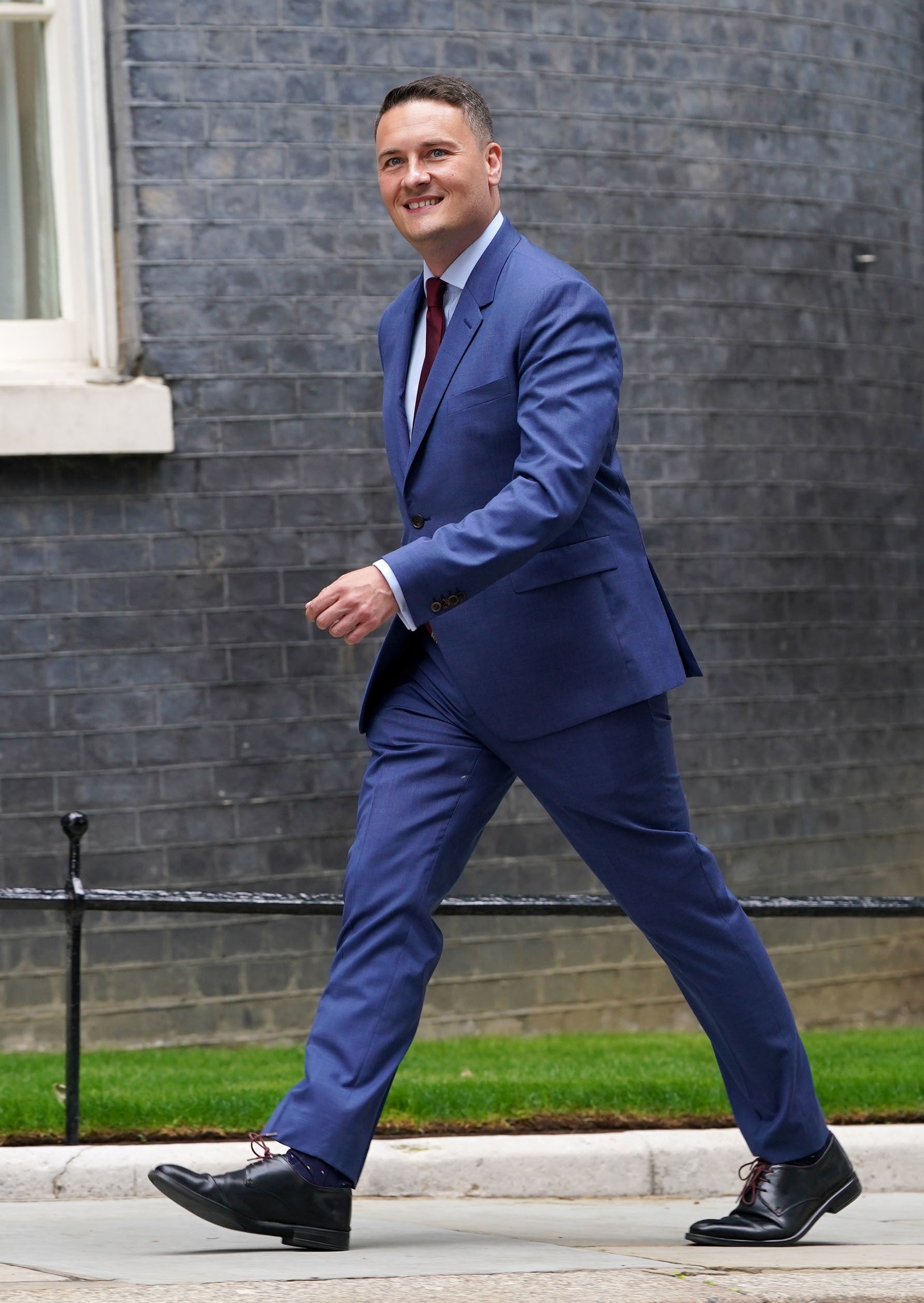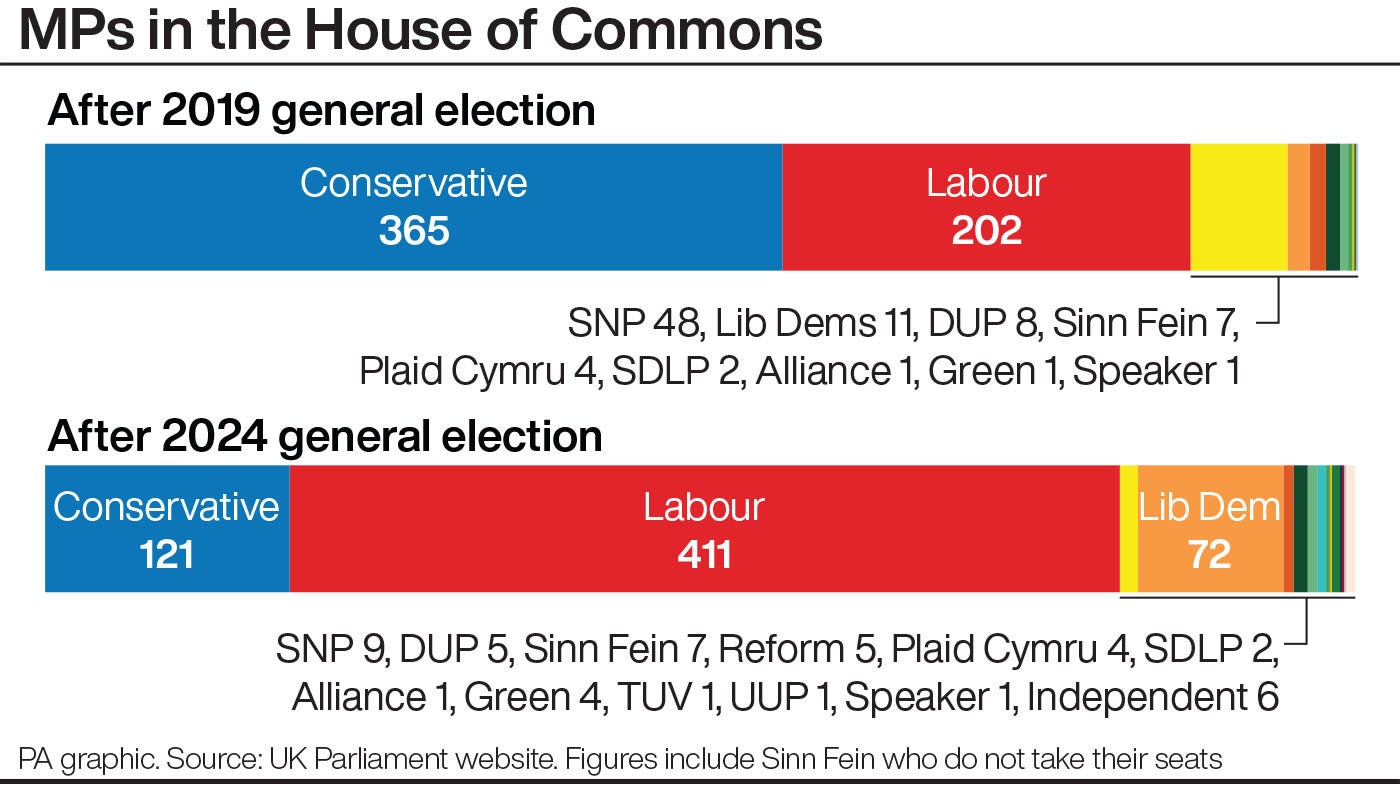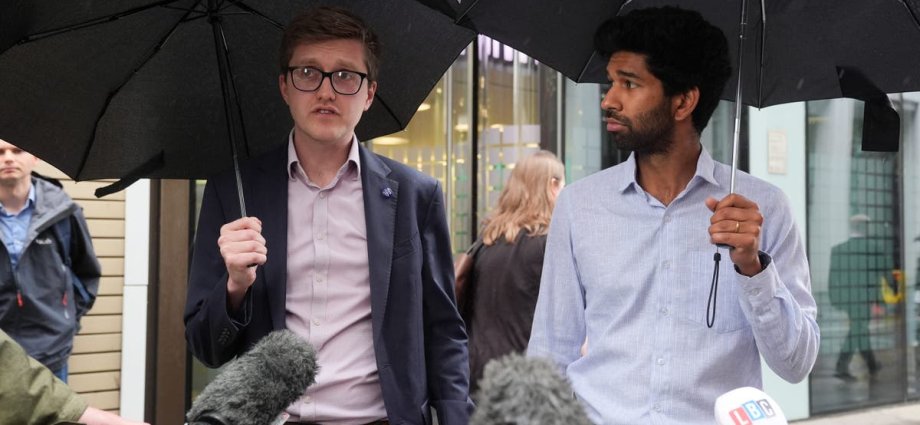Junior doctors in England held “collaborative talks” with the Health and Social Care Secretary, medics have said as they hailed a “positive first step” towards ending their long-running dispute over pay.
More talks are expected to take place next week, Dr Vivek Trivedi and Dr Robert Laurenson, co-chairmen of the British Medical Association’s (BMA) Junior Doctors’ Committee have said.
They said that there are no plans for more strike action “at the moment” as talks progress.

It comes and Health Secretary Wes Streeting said that the talks mark an “important reset moment” in relations between the Government and junior doctors in England.
Mr Streeting said he was “optimistic” about the talks.
After the meeting, Dr Trivedi said: “It was a positive meeting, we were pleased to be able to meet the Secretary of State and his team so quickly after the General Election – it signifies the urgency that they’re placing on resolving this dispute which has already lasted 20 months.
“The meeting today was positive and we’ve already agreed to meet again next week with the Secretary of State to further discuss how we can progress.
“Today we talked a little bit about some of the roadblocks that have prevented us from progressing so far, and how we can navigate through those to reach a resolution.
Dr Laurenson added: “This Secretary of State actually wanted to learn what was going wrong and why things were stalling, and we’re happy to have those conversations.
“This meeting was definitely a positive step, but I don’t think we can place of value, or a certainty on how quickly things are going to take to resolve, or what might needs to happen to make things resolve.
“This was definitely a collaborative talk, and I think it’s fair to say we have no plans at the moment to call for strike action.”
Dr Laurenson added: “There were talks about reform, and we’re interested to hear what that might pan out to be. This is a complex negotiation and it’s going to take some time.
“This was a positive first step, but that’s all it was the first step. There’s much more meat that needs to be added to the bones before we’re going to be able to come out with any sort of agreement.”
He added: “Now it’s just down to the Government to be able to come up with a credible offer through the series of negotiations that we’re about to go into.
Dr Trivedi added: “We didn’t come into this meeting expecting a resolution to our dispute – today we were hoping to be heard and to be listened to, which is what happened.
“And we hope to be able to build on that and continue in good faith, as we have always done, but does seem to be reciprocated now, then it does suggest that we will be able to reach a resolution.”
Junior doctors in England say their pay has been cut by more than a quarter over the last 15 years and have called for a 35% increase, but Labour says it cannot afford to meet this demand.
Asked if he was optimistic about the talks, Mr Streeting said: “Optimistic? Yes.
“This is an important reset moment in the relationship between junior doctors and their Government.”
Speaking at the Tony Blair Institute’s Future of Britain Conference 2024, he added: “In opposition, we were very clear that the headline 35% pay demand is not one that we could afford, and that has not changed since the General Election.
“The reason we were so blunt in opposition wasn’t simply about delivering a tough message, but about showing them the respect I think they are due, and a key ingredient of respect is honesty.
“Secondly, beyond pay, there are a whole range of issues about how junior doctors are treated by their employer which I am genuinely angry about – in terms of their placements, their rotations.”

Health leaders urged the Government to resolve the dispute as a priority after NHS England said 61,989 appointments, procedures and operations had been postponed as a result of the latest walkout from June 27 to July 2.
The strike was the 11th by junior doctors in 20 months.
Since December 2022 there have been strikes across a number of staff groups in the NHS including nurses, other doctor groups, physiotherapists and paramedics.
Collectively the industrial action has led to nearly 1.5 million appointments, procedures and operations being postponed, at an estimated cost to the NHS of more than £3 billion.











